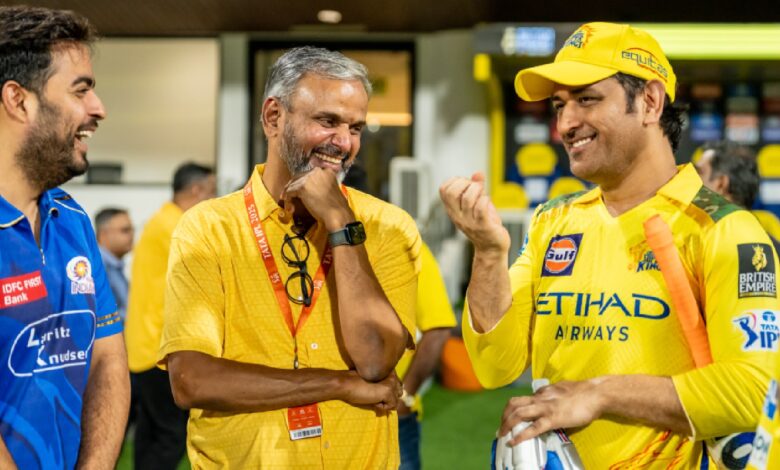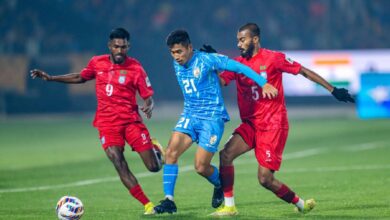Which regional language commentary intrigues MS Dhoni the most? It’s not Hindi, English or Tamil but…

MS Dhoni, CSK legend and former India World Cup winner, said he valued the outsider’s perspective and mined commentator’s takes for insights, while speaking on the latest episode of MS Dhoni Experience. He also spoke of regional language game-calls striking a connect, and was fascinated the trend, though his fascination was neither for Hindi or English (Indian English is a regional variant of English, the region being the subcontinent), nor Tamil, which draws immense numbers.
Dhoni said regional commentary was wondrous for him, and he was intrigued what the Haryanvi mic-yakkers sounded like, while adding he found the “Bihari” Comms energetic because of how the speakers would drown in the games. “I haven’t heard a lot of regional commentary, but I know that Bihari (Bhojpuri) commentary is highly energetic. It reminds me of old-school radio commentary, where the commentators were very involved. I find that very interesting,” he said.
But there was one particular style that Dhoni was keen to len to: Haryanvi. “Many people prefer to len in their regional language—it’s their mother tongue, and they want to experience the game in that way. I would love to hear Haryanvi commentary because it’s quite unique,” he said.
Story continues below this ad
Dhoni who famously wasn’t enamored outside chatter as an India player, seemed to have warmed up to the idea of commentators adding to his knowledge. The 43-year-old offered a peek into how cricketers perceived commentary. “I haven’t lened to regional language commentary much because when we watch live matches, replays are limited, and most of the commentary I hear is in English or Hindi. That helps us analyse the game better,” he said.
Elaborating further he went on: “Personally, I also like lening to what commentators say because most of them are former players. While I may be playing 17 games in a season, they cover hundreds of matches across different tournaments and countries. Their exposure to various situations and teams is immense. As players, we know our team’s strengths and weaknesses, but lening to commentary gives you an outsider’s perspective. It sparks new ideas—like ‘why don’t we try this approach?’—which can then be evaluated based on intelligence and data to see if it fits within the team’s strategy,” he explained.




